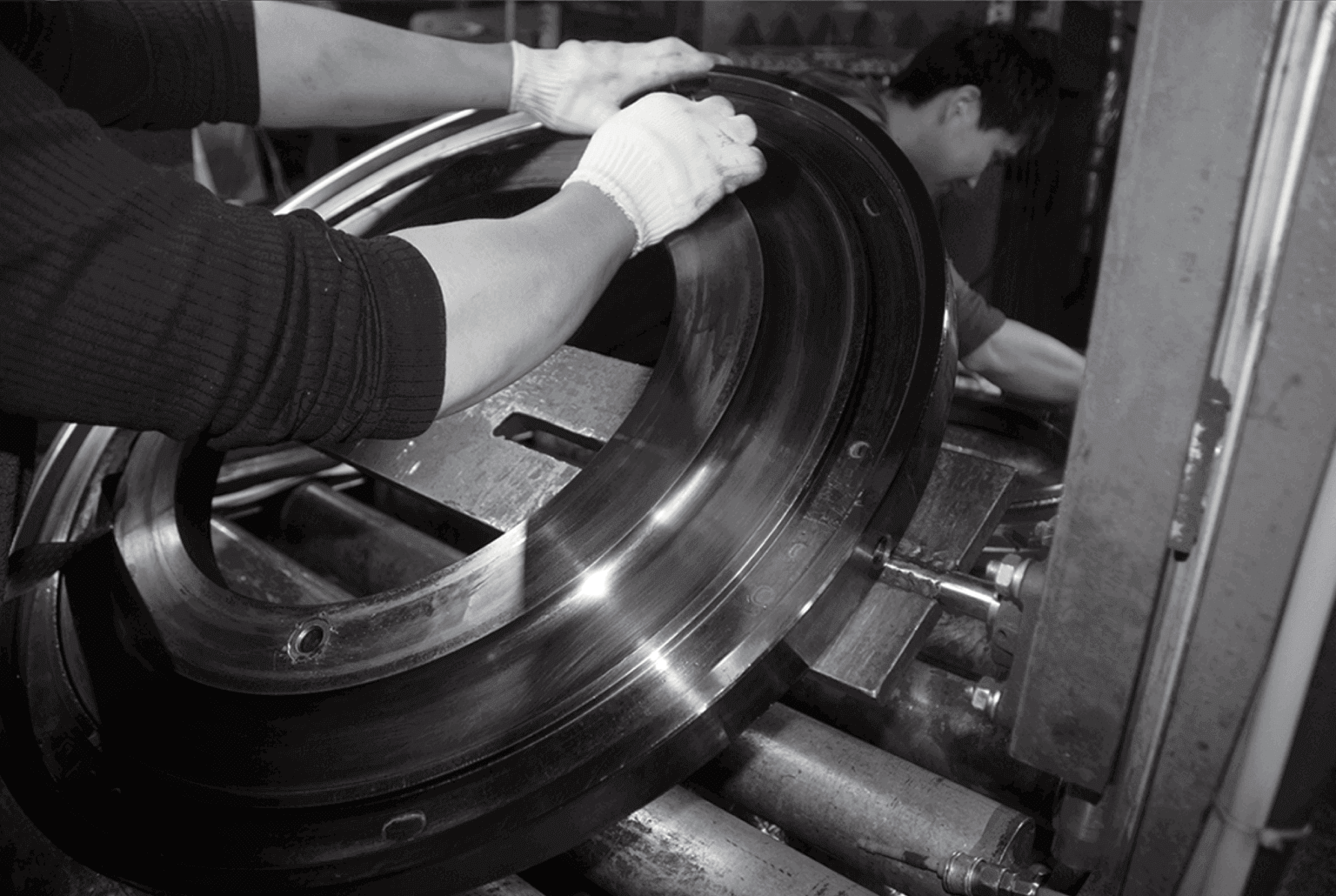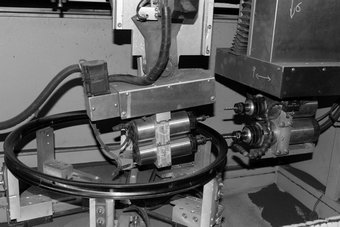As the new year rolls in, so do the latest and greatest in mountain bike wheels, with carbon options leading the charge. Riders seeking the ultimate upgrade for their mountain biking adventures will find the 2024 lineup of carbon wheels offers unparalleled performance and style. These wheels blend cutting-edge technology with rugged durability, setting new standards for what mountain bikers can expect from their equipment.
The market now boasts a diverse array of carbon mountain bike wheels designed to conquer any terrain. From featherweight models for the cross-country racer to robust builds for the downhiller, every rider has something to look forward to in this year’s selection. Let’s delve into the best carbon mountain bike wheels that 2023 has to offer, ensuring your ride is equipped with nothing but the best.
Introduction to Carbon Mountain Bike Wheels
Carbon mountain bike wheels are a significant development in the world of mountain biking. These wheels are renowned for their combination of low weight and high stiffness, which contribute to a more efficient and controlled riding experience. The introduction of carbon as a material in wheel construction has revolutionized the way riders approach different terrains and challenges on the trail.
The allure of carbon wheels lies in their ability to transform the riding dynamics. When riding, the reduced rotational mass of carbon wheels enables quicker acceleration and easier handling, allowing riders to navigate technical sections with greater agility. Additionally, the inherent stiffness of carbon improves power transfer, ensuring that every pedal stroke is maximized for forward motion.
As mountain biking evolves, so does the technology behind carbon wheels. Manufacturers are constantly refining their processes to create wheels that not only enhance performance but also increase durability. This ongoing innovation ensures that carbon mountain bike wheels remain a top choice for riders seeking a competitive edge or simply looking to enjoy their riding experience to the fullest.
Benefits of Carbon Mountain Bike Wheels
Carbon mountain bike wheels offer a suite of benefits that cater to the specific needs of riders. The primary advantage is the significant weight reduction they provide, which translates into more nimble handling and faster climbing. The low weight of a carbon wheelset is particularly noticeable when riding cross country, where every gram matters in the pursuit of speed and efficiency.
Another key benefit is the customization options available with carbon wheels. Factors such as spoke count and spoke tension can be tailored to the rider’s preference, allowing for a balance between wheel strength and weight. The hubs, being the central component of wheel rotation, are also optimized in carbon mtb wheels for smoothness and durability. The carbon rim itself contributes to a more responsive ride, offering precise control in corners and rough terrain.
Moreover, the advanced carbon wheelset often comes with a lifetime warranty, reflecting the confidence manufacturers have in their carbon fiber creations. Riders can also enjoy the added performance of a stiff and robust rear wheel that effectively transfers power from the components to the trail. These wheels are designed to withstand the rigors of mountain biking while offering consistent performance.
Finally, the technological advancements in carbon wheels have led to improved safety and longevity. High-quality carbon rims are engineered to survive impacts that would dent or crack other materials, and the use of carbon fiber ensures a level of vibration absorption that reduces rider fatigue. With these enhancements, carbon mountain bike wheels continue to set the standard for performance and reliability in the world of off-road cycling.
The Advantages of Carbon Over Alloy
When it comes to mountain bike wheels, carbon stands out as the superior choice over alloy for several reasons. The most notable advantage is the strength-to-weight ratio. Carbon wheels are significantly lighter, which translates to quicker acceleration and easier climbing. The stiffness of carbon also means more direct power transfer and precise handling. Additionally, the construction of carbon wheels allows for the spokes and other components to be optimally placed for increased performance and reduced wind resistance.
Compatibility Considerations for Your Bike Setup
When upgrading to carbon mountain bike wheels, it’s crucial to consider compatibility with your existing bike setup. Cross country riders, in particular, must ensure that their frame, fork, and drivetrain components are compatible with the dimensions and hub standards of the new wheels. This ensures optimal performance and maintains the integrity of the ride.
Alloy vs Carbon: Comprehensive Comparisons
In the debate between alloy and carbon mountain bike wheels, each has its merits. Alloy wheels are known for their durability and cost-effectiveness, while carbon wheels offer weight savings and improved ride quality. Components like hubs, spokes, and rims are all affected by the choice of material, influencing the bike’s overall handling and performance.
Choosing the right carbon wheels involves more than just aesthetics; it requires careful consideration of riding style, terrain, and performance needs. Opting for reputable brands known for quality construction and after-sales support can be pivotal in finding a wheelset that elevates your mountain biking experience.
Factors Influencing Carbon Wheel Performance
Carbon wheel performance is influenced by a myriad of factors, including the quality of carbon fiber used, the layup pattern, and the manufacturing process. These elements determine the strength, weight, and responsiveness of the wheels, ultimately affecting speed and control on the trail.
Understanding the Impact of Wheel Size and Width
Wheel size and width are crucial in defining the ride characteristics of a mountain bike. Larger diameters, such as 29 inches, roll over obstacles more easily and provide greater momentum, while wider widths offer improved tire support and traction, critical for aggressive riding and cornering stability.
The Role of Freehub Engagement in Wheel Selection
Freehub engagement is a key factor when selecting wheels, as it affects how quickly power transfer occurs from the pedals to the rear wheel. A hub with quicker engagement can provide a more responsive ride, beneficial during climbs and when navigating technical sections where rapid accelerations are needed.
Carbon Wheel Durability and Maintenance
Carbon wheels require a nuanced approach to maintenance for longevity, especially given their investment cost. Proper care includes regular inspections for damage, maintaining appropriate spoke tension, and ensuring that the wheels are kept clean from debris and chemicals that can degrade the carbon fiber.
Longevity of Carbon Wheels in Rugged Conditions
Despite perceptions of fragility, modern carbon wheels can exhibit remarkable longevity, even in rugged conditions. Advances in carbon layup techniques and resin systems have enhanced their ability to endure the repetitive stresses and impacts associated with aggressive mountain biking.
Essential Maintenance Tips for Carbon MTB Wheels
Maintaining carbon MTB wheels involves routine checks for any signs of wear or damage, particularly paying attention to the spoke count for even tension. Keeping the rear wheel free from excessive dirt and ensuring proper torque on all fasteners are also vital steps to preserve the integrity of the wheels.
The Value Proposition: Is the Investment in Carbon Worth It?
When considering carbon wheels, a rider must weigh the performance enhancements against the cost. For those seeking to push their limits, the investment can offer substantial gains in speed, handling, and overall ride quality, which may justify the higher expense.
Cost-Benefit Analysis of Carbon vs Alloy Wheels
A cost-benefit analysis of carbon versus alloy wheels reveals a trade-off between initial expense and long-term performance. Carbon wheels provide a stiffer, lighter ride, which can translate to efficiency gains and faster climbing. However, alloy wheels are often more affordable and can offer a more compliant ride in rough terrain.
Real-World Testimonials on Carbon Wheel Performance
Real-world testimonials from seasoned riders often highlight the transformative effect of carbon wheels on their mountain biking experience. Many cite the remarkable stiffness-to-weight ratio, improved acceleration, and the confidence-inspiring ride that carbon wheels deliver on diverse terrains.
The Future of Mountain Biking: Innovations in Carbon Wheel Technology
The future of mountain biking is being shaped by continuous innovations in carbon wheel technology. Manufacturers are pushing the boundaries of carbon fiber’s capabilities, crafting wheels that are not only lighter and stronger but also more adept at absorbing trail vibrations for improved rider comfort.
Upcoming Trends in Carbon Wheel Designs
As carbon wheel technology advances, trends point towards further weight reduction, increased impact resistance, and the integration of aerodynamic features tailored for off-road performance. These developments are set to redefine what riders can expect from their mountain bike wheelsets in terms of efficiency and control.
Sustainability in Carbon Wheel Manufacturing
Manufacturers of carbon mountain bike wheels are increasingly adopting sustainable practices, recognizing the importance of environmental stewardship. Efforts include using recycled materials for carbon layup, implementing energy-efficient production methods, and designing wheels for longevity and recyclability. These initiatives reflect a commitment to reducing the carbon footprint of carbon wheelset production, ensuring riders can enjoy the trails with a cleaner conscience.
Riders’ Showcase: Stories from the Trails
Riders worldwide are sharing exhilarating tales of conquering rugged terrains with carbon wheels. These stories often highlight the transformative experience of upgrading to carbon, emphasizing improved handling and responsiveness. Such testimonials serve as real-world endorsements of carbon’s superiority on the trails, inspiring others to consider making the switch.
Epic Rides and Carbon Wheel Success Stories
From the peaks of the Rockies to the dense forests of the Pacific Northwest, epic rides on carbon wheels are becoming legendary. Cyclists report significant performance gains, attributing their successful climbs and descents to the stiffness and lightweight nature of their carbon wheelsets. These success stories underscore the wheels’ capabilities in providing an edge in challenging conditions.
Professional Insights on Wheel Choice and Bike Optimization
Professionals in the mountain biking world stress the importance of selecting the right carbon wheels for specific riding styles. They offer insights on optimizing bike setups for various terrains, pointing out that the right wheel choice can drastically improve ride quality. These experts also note the importance of matching wheel characteristics to rider preferences for an unparalleled riding experience.
Conclusion: Your Ultimate Guide to Carbon Mountain Bike Wheels
As the biking season approaches, enthusiasts are better prepared to select the carbon wheelset that best matches their riding ambitions and trail demands. When choosing a carbon wheelset, consider vibration absorption, a key factor in ride comfort and control. A wheelset that effectively absorbs terrain-induced vibrations can lead to a smoother, more enjoyable ride. Ultimately, the right carbon wheels elevate the mountain biking experience by harmonizing rider input with trail feedback.
Before hitting the trails, it’s essential to equip your bike with the best wheels. Consider the internal width and tubeless rim tape of your carbon wheels, as these elements significantly impact tire fit and performance. With the optimal setup, riders can tackle the trails with confidence, knowing their wheels are prepared for the adventure ahead.








